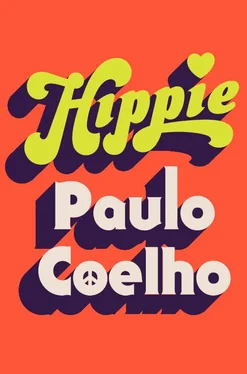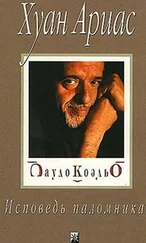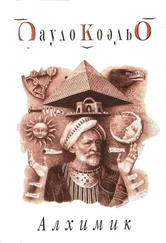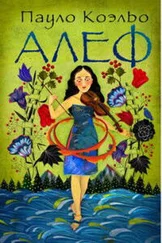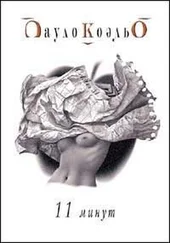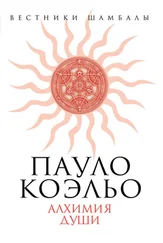Passports, these tiny little books issued by governments and placed along with cash (a lot or little, it doesn’t really matter) inside a belt worn around the waist, served two purposes. The first, as we all know, was for crossing borders—as long as the border guards didn’t get caught up in the news reports and decide to send someone back because they weren’t accustomed to those clothes and that hair, or those flowers and those necklaces and those beads and those smiles belonging to people who seemed to live in a constant state of ecstasy—a state normally, though often unjustly, attributed to diabolical drugs that, according to the press, these young people consumed in ever greater quantities.
A passport’s second purpose was to get its owner out of extreme situations where they’d run out of money and had nowhere to appeal for help. In such cases, the “Invisible Post” always provided much-needed information regarding locations where a passport might be sold. The price varied according to the country: a passport from Sweden, where everyone was blond, tall, and blue-eyed, wasn’t worth much, since it could be resold only to those who were blond, tall, and blue-eyed, and so these were never the most sought-after. But a Brazilian passport was worth a fortune on the black market—the country was home not only to the blond, tall, and blue-eyed, but also to those who were tall and short, black people with dark eyes, Asians with narrow eyes, others of mixed race, Indians, Arabs, Jews; in other words, an enormous cultural melting pot that made a Brazilian passport one of the most coveted on the planet.
Once he’d sold this passport, the original owner would go to his country’s consulate and, feigning horror and distress, explain that he’d been mugged and everything taken—he was completely out of money and had no passport. The consulates of wealthier countries would furnish a new passport and a free flight back to a traveler’s country of origin, an offer immediately declined under the allegation that “somebody owes me a hefty sum, I need to get what’s mine before I go.” The poorer countries, often governed by harsh regimes in the hands of generals, would conduct a veritable interrogation to determine whether the applicant wasn’t on a list of “terrorists” wanted for subversion. Once they’d verified that the young woman (or man) had a clean record, these countries were bound, against their will, to issue the new document. And they never offered a return flight, because they had no interest in having such derelicts influence generations that had been raised to respect God, family, and property.
—
Returning to the trails: after Machu Picchu, the next hot spot was Tiahuanaco, in Bolivia. Then Lhasa, in Tibet, where it was difficult to enter because, according to the “Invisible Post,” there was a war between monks and Chinese soldiers. Of course it was difficult to imagine such a war, but everyone took it seriously and wasn’t about to risk an endless trip to later end up a prisoner to the monks or the soldiers. The last of the era’s great philosophers, who had just split up in April of that year, had a short time before proclaimed that the greatest wisdom on the planet was to be found in India. That was enough to send all the world’s young people to the country in search of wisdom, knowledge, gurus, vows of poverty, enlightenment, and communion with My Sweet Lord.
The “Invisible Post,” however, warned that Maharishi Mahesh Yogi, famed guru to the Beatles, had tried to engage in sexual relations with Mia Farrow. The actress had always been unhappy in love through the years. She had traveled to India at the invitation of the Beatles, possibly in the hope of finding a cure for other traumas related to her sexuality, which seemed to hound her like bad karma.
But everything suggests that Farrow’s bad karma had accompanied her, John, Paul, George, and Ringo on their trip. According to Farrow, she was meditating in the great seer’s cave when he grabbed her and tried to force her into sexual relations. By this point in the trip, Ringo had already returned to England because his wife hated Indian food and Paul had also decided to abandon the retreat, convinced that it wasn’t doing anything for him.
Only George and John remained in the Maharishi’s temple when Mia came looking for them, in tears, and told them what had happened. The two immediately packed their bags, and when the Enlightened One came to ask what was going on, Lennon gave him a bruising response:
“You’re the fucking Enlightened One, are you not? You ought to be able to figure it out.”
—
Now, in September 1970, women ruled the world—or, more precisely, young hippie women ruled the world. Wherever they went, the men did so knowing these women weren’t about to be seduced by the latest trends—the women knew much more about the subject than the men did. And so the men decided to accept once and for all that they needed these women; they constantly wore an expression of yearning, as though begging, “Please protect me, I’m all alone and I can’t find anyone, I think the world’s forgotten me and love has forsaken me forever.” The women had their pick of men and never gave a thought to marriage, only to having a good time enjoying wild, intense sex. When it came to the important things, and even the most superficial and irrelevant, they had the last word. However, when the “Invisible Post” brought news of Mia Farrow’s sexual assault and Lennon’s reaction, these women immediately decided to change their itineraries.
A new hippie trail was created, from Amsterdam (Holland) to Kathmandu (Nepal), on a bus that charged a fare of approximately a hundred dollars and traveled through countries that must have been pretty interesting: Turkey, Lebanon, Iraq, Iran, Afghanistan, Pakistan, and part of India (a great distance from the Maharishi’s temple, it’s worth noting). The trip lasted three weeks and an insane number of miles.
Karla was seated in Dam Square, asking herself when the guy who ought to accompany her on this magical adventure (in her mind, of course) would show up. She’d left a job behind in Rotterdam, just an hour’s train ride away, but since she needed to save every last cent, she’d hitched a ride and the trip had taken almost a day. She had found out about the bus trip to Nepal in one of a dozen alternative newspapers published with the sweat, love, and effort of people who felt they had something to say to the world and subsequently sold for a nominal price.
After nearly a week of waiting, she was growing anxious. She’d approached a dozen young men from different countries who wanted nothing but to stay put, in that town square filled with nothing remarkable but a phallic monument, which at a minimum should have inspired virility and courage. But no; not a single one of them was inclined to travel to such unknown lands.
It wasn’t a question of distance: most of them came from the United States, Latin America, Australia, and other countries that required hefty prices for airline tickets, and they had faced many border checkpoints where they might have been barred and forced to return to their countries of origin before ever seeing one of the two world capitals. When they arrived there, they’d sit around the nondescript square, smoking marijuana and getting happy because there they could do so in plain view of the police, and they were soon literally kidnapped by the city’s numerous sects and cults. They forgot, at least for a while, what they had heard their entire lives: My boy, you have to go to college, get rid of this hair, don’t bring shame to your parents, people (what people?) will say we didn’t raise you right, whatever it is you’re listening to, it isn’t music, it’s time you got a job, or Look at your brother (or sister), he’s younger than you are and still manages to pay for his own fun without asking us for money.
Читать дальше
